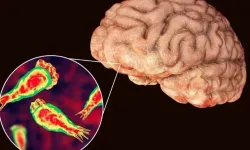Brazil's Ministry of Health announced that the number of people believed to have dengue fever in the country has exceeded 650,000.
A Dengue Fever diagnostic center was established in a hospital in Sao Paulo. More than 100 people are diagnosed with the disease every day.
Last year, more than 2 million 350 thousand cases were recorded in the country. The Dengue Fever virus is transmitted to humans by mosquitoes. The disease, which generally causes fever and intense bone pain after the incubation period, can cause death in some cases.
Cases usually increase in June, September, December and March, known as the "rainy season". Brazil launched a vaccination campaign at the beginning of the month for the disease, for which there is no specific treatment.
WHAT IS DENGUE FEVER?
Dengue fever is a viral disease that is endemic in tropical and subtropical regions around the world and causes severe flu-like symptoms. It is also known as 'broken bone fever' because it causes bone pain like broken bones. The causative agent is Dengue virus from the flavivirus family. There are 4 known types of dengue virus. Those who get sick with one type can get sick again with other types.
SYMPTOMS OF DENGUE FEVER
Through the bite of an infected mosquito, the dengue virus enters through the skin, enters the bloodstream and is found in large quantities in the blood of patients 24 hours after a fever. One in four people infected with dengue will become ill. Symptoms can be mild or severe. Severe dengue fever can be life-threatening within a few hours and usually requires hospitalization. Mild dengue symptoms can be confused with other illnesses that cause fever, aches and pains or a rash.















